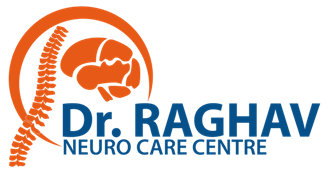- Home
- »
- Movement Disorder
- »
- Huntington’s Disease
Huntington’s Disease
Parkison's Disease
Tics
Chorea
Dystonia
Huntington's Disease
Myoclonus
Parkison's Disease
Botox Injections
Deep Brain Stimulation Surgery
Huntington’s disease (HD) is a progressive genetic disorder that profoundly impacts an individual’s physical and cognitive abilities. As a condition marked by its unique set of symptoms and challenges, HD requires a deep understanding for effective management and support. This article will explore the causes, symptoms, diagnosis, and treatment options for Huntington’s disease, shedding light on this complex and debilitating disorder.
What is Huntington’s Disease?
Huntington’s disease is a progressive neurological disorder that affects the brain’s nerve cells. It is characterized by a combination of motor abnormalities, cognitive decline, and psychiatric symptoms. HD is caused by a genetic mutation in the huntingtin gene (HTT) located on chromosome 4. This mutation results in the production of an abnormal form of the huntingtin protein, which gradually damages nerve cells in the brain.
Causes of Huntington’s Disease
The primary cause of Huntington’s disease is an inherited genetic mutation in the huntingtin gene. Here’s a closer look at how this genetic alteration leads to the development of the disorder:
- Genetic Mutation: The huntingtin gene mutation leads to the production of a defective huntingtin protein. This abnormal protein accumulates in the brain, causing progressive damage to nerve cells.
- Autosomal Dominant Inheritance: HD is an autosomal dominant disorder, meaning that an individual with the mutated gene has a 50% chance of passing it on to their children. This inheritance pattern means that only one copy of the mutated gene is needed to develop the disease.
Symptoms of Huntington’s Disease
The symptoms of Huntington’s disease typically begin in adulthood, although there are rarer forms affecting children and adolescents. The symptoms can be broadly categorized into three main areas:
- Motor Symptoms: The most distinctive motor symptom of HD is chorea—characterized by jerky, random, and dance-like movements. Other motor symptoms include dystonia (sustained muscle contractions leading to abnormal postures), balance and coordination difficulties, and a gradual decline in voluntary movements.
- Cognitive Symptoms: HD affects cognitive functions, causing problems with memory, concentration, problem-solving, and decision-making. Individuals may experience declines in language skills, such as difficulty finding words and expressing thoughts.
- Psychiatric Symptoms: Psychiatric disturbances in HD can include depression, anxiety, irritability, mood swings, and changes in personality. In the later stages of the disease, psychosis, characterized by hallucinations and delusions, may occur.
Diagnosis of Huntington’s Disease
Diagnosing Huntington’s disease involves a thorough evaluation process:
- Assessment of Symptoms: Healthcare professionals review the individual’s medical history and evaluate motor, cognitive, and psychiatric symptoms.
- Neurological Examination: A physical examination assesses reflexes, muscle tone, coordination, and other neurological functions.
- Genetic Testing: A blood test can confirm the presence of the mutated huntingtin gene. Genetic counseling is recommended to help individuals and families understand the implications of the test results.
- Imaging Studies: Brain imaging techniques such as MRI or PET scans can assess brain structure and function, helping to rule out other conditions and support the diagnosis of HD.
Treatment Options for Huntington’s Disease
Currently, there is no cure for Huntington’s disease, but various treatments can help manage symptoms and improve quality of life:
- Medications: Several medications are available to manage motor symptoms (e.g., chorea), psychiatric symptoms, and associated conditions. For instance, medications that regulate dopamine levels or antipsychotic drugs may be prescribed.
- Physical and Occupational Therapy: These therapies help maintain mobility, improve muscle strength and coordination, and assist with daily living activities.
- Supportive Care: A multidisciplinary approach involving healthcare professionals, social workers, and caregivers provides comprehensive support, including emotional and psychological care, nutritional management, and end-of-life planning.
- Genetic Counseling: Genetic counseling offers valuable support for individuals and families affected by HD, helping them understand the inheritance pattern, family planning options, and access support services.
- Clinical Trials: Participation in clinical trials provides opportunities for individuals with HD to contribute to scientific research and potentially benefit from new treatments.
Living with Huntington’s Disease
Living with Huntington’s disease presents significant challenges, both physically and emotionally. Effective management includes:
- Emotional and Psychological Support: Addressing the psychological impact of HD through counseling and support networks is crucial for maintaining mental health.
- Coping Strategies: Developing strategies to manage symptoms and stress can improve daily functioning and quality of life.
- Support Resources: Utilizing resources such as support groups, educational materials, and professional assistance can enhance understanding and management of the condition.
Conclusion
Huntington’s disease is a progressive genetic disorder with complex symptoms affecting motor function, cognition, and mental health. While there is no cure, various treatments and supportive measures can help manage symptoms and improve quality of life. Early diagnosis and a comprehensive, multidisciplinary approach are essential for effective management of the disease.
- raghav.sem@gmail.com
- 7310644100
- Vipin Nursing Home, Krishna Nagar, Mathura
Quick Link
Departments
- Cervical
- Epilepsy
- Migraine
- Dementia
- Headache
- Parkinson's
- Muscle Disease
- Brain Stroke Messages
- Spine Related Disorders
- Neuropathy Amongst Other Disorder
